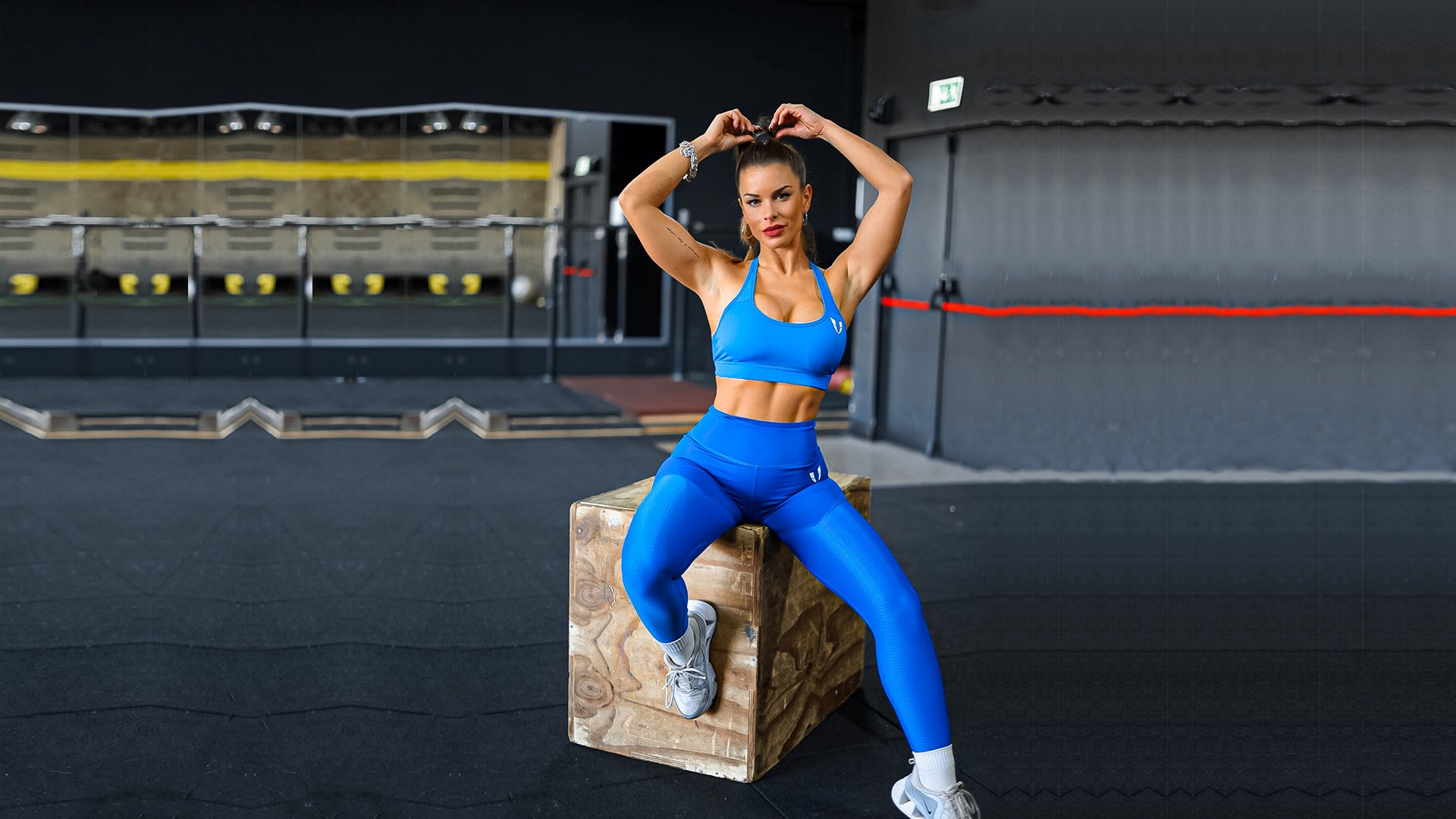
Wat is overtraining ? tekens en oplossingen
Overtraining, een term die wordt gebruikt in de context van activiteiten met een hoog niveau van fysieke of mentale stress, kan worden beschreven als een buitensporige hoeveelheid oefening die door de atleet wordt uitgevoerd. Overtraining wordt geassocieerd met chronische vermoeidheid en kan, wanneer dit niet wordt opgelost, ernstige gevolgen hebben.
Waarom ontstaat overtraining?
Overtraining treedt op vanwege te veel intensiteit, frequentie of duur van de oefening die de trainer gebruikt. De overmatige hoeveelheid oefening kan worden veroorzaakt door een te lange training of door te trainen op een te hoge intensiteit voor het fitnessniveau van het individu.
- Trainingsfouten ontstaan wanneer een atleet zijn grenzen niet kent en doorgaat met trainen ondanks vermoeidheid, ziekte, blessures, etc. Ook een gebrek aan ervaring kan bijdragen aan dit type overtraining.
- Trainingsplateaus - ontstaan wanneer een atleet continu traint met dezelfde intensiteit en zijn/haar lichaam niet de kans geeft om te herstellen van de oefening. Als een individu niet genoeg rust neemt tussen de trainingen, kunnen trainingsplateaus ontstaan door onvoldoende hersteltijd.
Tekenen van overtraining
1) Verminderde prestaties
Er zijn twee manieren om prestaties te meten: objectief en subjectief.
- Subjectief - gevoel van fysieke of mentale vermoeidheid, slecht slapen, gebrek aan motivatie, etc. Een overzicht van blessures kan duiden op slechte prestaties als gevolg van overtraining.
- Doelstelling - lagere snelheid/vermogen, hogere hartslag in hetzelfde tempo als bij eerdere trainingen, gewichtsverlies zonder dat er veranderingen in het dieet zijn doorgevoerd, etc.

2) Psychologische symptomen van overtraining
Er zijn verschillende psychologische symptomen waar je op kunt letten als een atleet overtraint:
- Stemmingswisselingen, prikkelbaarheid of depressie kunnen een teken zijn dat iemand rust nodig heeft.
- Slapeloosheid - de atleet kan moeite hebben met slapen, wat kan komen door slechte voeding/uitdroging, te veel lichaamsbeweging zonder voldoende rust, etc.
- Slechte concentratie - de atleet kan moeite hebben om zich op de taak te concentreren vanwege vermoeidheid.
- Conflicten met anderen - overtraining kan leiden tot negatieve gevoelens ten opzichte van familieleden of coaches, wat kan leiden tot ruzies/gevechten.
3) Fysieke symptomen van overtraining
Een atleet ervaart verschillende fysieke symptomen als hij/zij overtraint:
Kortademigheid: het lichaam krijgt mogelijk niet voldoende zuurstof vanwege een verminderde cardiovasculaire capaciteit.
- Verhoogde hartslag - de verhoogde hartslag kan het gevolg zijn van te veel training, uitdroging of een slecht dieet.
- Verminderde eetlust - een gebrek aan voedingsstoffen in de voeding kan bijdragen aan verminderde prestaties.
- Spierpijn - overbelaste spieren van de laatste training kunnen leiden tot een vertraagde hersteltijd.
- Blessure - Als een atleet niet goed herstelt van een eerdere training, bestaat het risico dat hij bij de volgende training een blessure oploopt.
Overtraining oplossingen
Overtraining kan snel optreden als een atleet niet voorzichtig is met het beheren van zijn trainingsroutine. Overtraining kan leiden tot prestatievermindering, blessures en ziektes, dus het is belangrijk voor atleten om overtraining tijdens fysieke activiteit te voorkomen.
Hier zijn enkele oplossingen voor atleten om overtraining te voorkomen:
1) Pas het trainingsschema aan
Als de prestaties van een atleet afnemen of als hij/zij steeds vermoeider raakt, kan het nodig zijn om een pauze in te lassen in de training.De lengte van de pauze kan per persoon verschillen, maar mag niet korter zijn dan 2 dagen en niet langer dan 7-10 dagen. Als de atleet na een rustperiode weer gaat trainen, moet hij dat doen met minder volume en intensiteit dan voorheen.
2) Hersteldieet
Of een atleet nu net aan zijn seizoen begint of al een aantal weken in competitie is, het kan gunstig zijn voor hen om een hersteldieet te volgen. De nadruk van het dieet zal verschillen op basis van de behoeften van de atleet, maar het zou een verscheidenheid aan voedingsstoffen moeten bevatten om herstel van trainingAls een atleet geen toegang heeft tot een gediplomeerd diëtist, kan het nuttig zijn om online te zoeken naar hersteldiëten.
3) Goede voeding en hydratatie
Goede voeding en hydratatie zijn essentieel om ziekte en blessures te voorkomen tijdens fysieke activiteit, omdat het lichaam de juiste voedingsstoffen nodig heeft om te herstellen van de training. Atleten moeten ook hun hydratatieniveaus in de gaten houden door veel water te drinken voor, tijdens en na fysieke activiteit. Het is gunstig voor atleten om elke dag 8-10 glazen water te drinken, die kunnen worden afgemeten op basis van het lichaamsgewicht van de atleet (bijv. 1 glas water per 10 lbs).

4) Vermijd stress
Na verloop van tijd kan overmatige stress leiden tot overtrainingssymptomen. Een atleet kan ervoor kiezen om een sportpsycholoog of cognitief gedragstherapeut te raadplegen om zijn stressniveau te beheersen en het risico op overtrainingssymptomen te verkleinen.
5) Individuele training
Bij het trainen voor hun sport is het belangrijk dat een atleet niet probeert om trainingen te voltooien die te geavanceerd voor hen zijn, omdat dit kan leiden tot overbelastingsblessures en overtraining. Bij het plannen van een trainingsroutineAtleten moeten altijd het plan van hun coach volgen of er een laten opstellen door een fysiotherapeut.
6) Zorg voor goed timemanagement
Wanneer atleten druk zijn met huiswerk, werk en andere persoonlijke verantwoordelijkheden, kan het moeilijk zijn om tijd vrij te maken voor hun training. Echter, het vastleggen van een goed timemanagementplan zal de atleet helpen om elke dag tijd vrij te maken voor fysieke activiteit. Als een atleet zich vastlegt op deze oplossingen voor overtraining, zou hij/zij niet moeten lijden onder de effecten van overtraining.
7) Leer van fouten
Het is normaal dat atleten fouten maken tijdens het trainen, maar het is belangrijk dat ze ervan leren. Het kan voor sommige atleten een uitdaging zijn om de tijd uit hun drukke schema's te halen om na te denken over hun trainingsroutines en deze dienovereenkomstig aan te passen. Deze activiteit zal atleten echter helpen overbelastingsblessures voorkomen en het risico op overtraining te verminderen.
8) Rust voor herstel
Ongeacht de intensiteit van de fysieke activiteit, moeten atleten altijd rusten om te herstellen tussen trainingen. Veel atleten realiseren zich niet dat rust hun prestaties daadwerkelijk kan verbeteren, omdat het hen helpt herstellen van de training en burn-out te voorkomen.
9) Persoonlijke trainer voor motivatie
Het is een goed idee voor atleten om een persoonlijke trainer die hen kan motiveren om regelmatig te trainen, ongeacht hun huidige schema. Er zijn verschillende manieren waarop een personal trainer een atleet kan motiveren, waaronder het plannen van trainingsroutines op basis van de doelen van de atleet, het creëren van een veilige omgeving om te trainen, het geven van deskundig trainingsadvies en het stellen van haalbare doelen.

10) Breng een competitief karakter in evenwicht met emotionele uithoudingsvermogen
Overmatige stress tijdens fysieke activiteit kan leiden tot overtraining.Het is belangrijk dat atleten inzicht hebben in hun stressniveau, zodat ze dit op de juiste manier kunnen beheersen. Een hoog stressniveau kan namelijk leiden tot verminderde motivatie, burn-out en overtraining.
De prestaties van een atleet kunnen lijden onder overtraining, wat optreedt wanneer het individu niet in staat is om te herstellen van training vanwege overmatige fysieke activiteit. Overtraining kan resulteren in een verminderd lichaamsgewicht, blessures, ziektes en een verminderde mentale gezondheid, dus het is belangrijk voor atleten om overtraining tijdens fysieke activiteit te voorkomen. Er zijn enkele oplossingen die atleten kunnen gebruiken om overtraining te voorkomen, waaronder het aanpassen van hun trainingsschema, het maken van een hersteldieet, het oefenen van goed timemanagement en het leren van fouten.




Laat een reactie achter
Deze site wordt beschermd door hCaptcha en het privacybeleid en de servicevoorwaarden van hCaptcha zijn van toepassing.